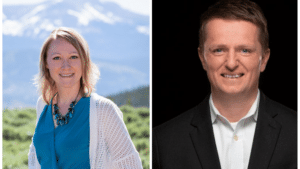Plenty of tools in a grower’s toolbox are under scrutiny, and seed treatments are no different. Across the U.S. states have been looking into the safety of seed treatments — some states are concerned to the point of introducing laws that would outright ban treated seed use. While these bills have not been passed, it’s clear to see that governments and consumers have concerns when it comes to treated seed.
Is there reason to be concerned?
While the seed industry knows the lengths and measures a seed treatment takes to move through its regulatory process to be approved, there’s a disconnect between agriculture and the public.
This week on Seed Speaks, Seed World Editor Alex Martin was joined with two industry experts to tackle the science behind seed treatments, what the regulatory environment is like and whether or not they’re safe and sustainable. Joining her are:
Martin Horrocks, director of seed treatment North America for BASF. Horrocks leads the BASF Seed Treatment team in sales, marketing and technical services. Before this, he was BASF Director of Business Operations for US Crop where he led customer program design and management, data and analytics and pricing and contract management. Martin joined BASF in 2011. Before BASF, he worked at Milliken & Co., Reichhold Inc. and Procter & Gamble. Martin earned his MBA from the University of South Carolina and his master’s in chemical engineering from the University of Manchester Institute of Science & Technology in the UK.
Dr. Keri Carstens, global regulatory crop protection business enablement leader for Corteva Agriscience. She leads outreach and communication of stewardship activities for best management practices for seed treatments, and serves as Corteva’s representative on the Honey Bee Health Coalition. Prior to her time at Pioneer, she was a U.S. EPA STAR Fellow. Keri grew up on a multi-generational farm in Iowa and earned her M.S. and Ph.D. in Toxicology and Entomology from Iowa State University.












